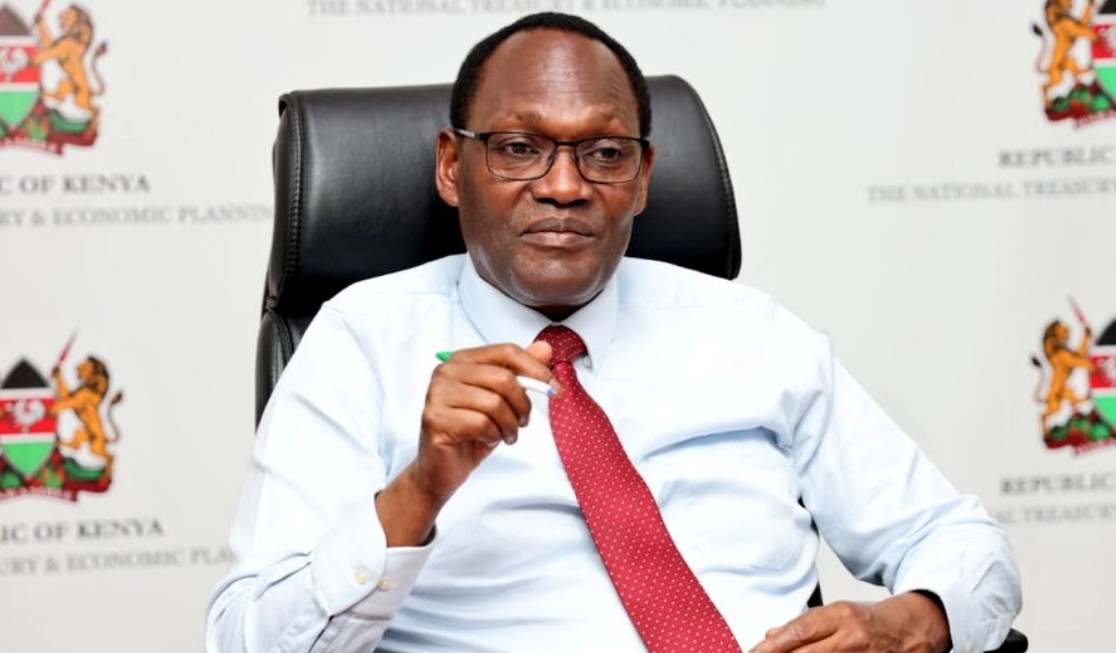PS Kiptoo: Government has full control of e-Citizen platform

The PS said that doubts over its control were misplaced since vendors had “completely and unconditionally” surrendered the platform to government agencies.
Treasury PS Chris Kiptoo has insisted that the government has total control of the e-Citizen platform, despite an audit that questioned payments and raised concerns about accountability.
Kiptoo told the National Assembly on Thursday that the handover of the system included all source codes, applications and modules, meaning the platform is now entirely under state management.
More To Read
- Kenyans can now gain access to over 22,500 government services on eCitizen platform
- MPs warn Treasury over lapses in fiscal discipline, pension system delays
- PS Belio Kipsang urges use of e-Citizen, warns against cash payments
- Finance Committee slams CS Mbadi for dodging key oversight sessions
- State agencies directed to pay Sh2.2 billion owed to Posta to avert shutdown
- MPs demand answers over Sh34.3 billion spent on public Wi-Fi project
He explained that the e-Citizen system, which has been running since 2017, has transformed public revenue collection, with figures climbing from Sh20 billion in 2022-23 to Sh163 billion in the 2024-25 financial year.
The PS said that doubts over its control were misplaced since vendors had “completely and unconditionally” surrendered the platform to government agencies.
“The handover entails a complete and unconditional surrender of all source code…all applications and modules supporting the services to the control of the ICT Authority,” Kiptoo told MPs.
Kiptoo added that each set of source codes is stored in government-managed data centres, giving the example of the National Transport and Safety Authority, whose data is held in its dedicated centre.
The Auditor General’s report had flagged payments to companies linked to the original contract between the ICT Authority and the consortium of Webmasters Kenya Limited, PesaFlow Limited and Olive Tree Media Limited.
The report warned these transactions might expose the government to legal and accountability risks.
Kiptoo, however, defended the payments, saying they were lawful and a result of contract changes rather than irregular expenditure.
He noted that when the International Finance Corporation handed over the system to the Treasury, vendor access to the convenience fee was blocked.
This triggered a legal dispute that stretched from 1997 to 2002 before the government chose to settle it out of court. According to him, the ICT Authority cleared about Sh850 million in payments before halting all transactions through the portal.
From July 2024, the Immigration department took over management of the platform, paying out all remaining obligations under the contract to a total of Sh1.1 billion.
Kiptoo also clarified that while the government controls the platform and its source codes, it does not own the payment gateway infrastructure. Instead, the contract covers the cost of using the gateway service, much like how firms use commercial payment channels such as PesaPal or Visa.
“The companies transacting using these payment channels don’t own them but pay a fee for the use of the same,” he said.
Another issue flagged by the audit was the discovery of unlisted bank accounts that collected millions in e-Citizen revenues over four fiscal years. Treasury clarified that the accounts were legitimate agency accounts created by PesaFlow and Equity Bank specifically for government revenue collection.
Other Topics To Read
- Headlines
- Treasury PS Chris Kiptoo
- E-Citizen
- Chris Kiptoo
- ICT Authority
- e-Citizen services
- e-Citizen platform
- E-Citizen Directorate
- Pesaflow
- Webmasters Kenya Limited
- e-Citizen portal
- PS Chris Kiptoo
- PesaFlow Limited
- Olive Tree Media Limited
- PS Kiptoo: Government has full control of e-Citizen platform
- Technology
Top Stories Today











































